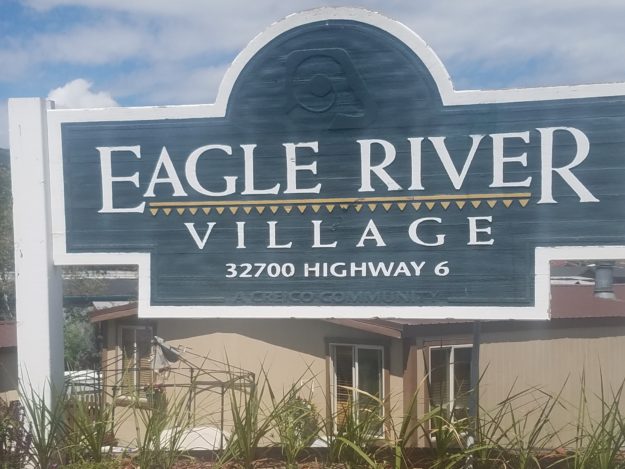Widgetized Section
Go to Admin » Appearance » Widgets » and move Gabfire Widget: Social into that MastheadOverlay zone
Eagle County, state blast ‘foul-smelling, discolored water’ at Eagle River Village

Editor’s note: This is part 3 of an ongoing series on water-quality issues in Eagle County that is publishing first in the Vail Daily. Click here to read part 1 and here to read part 2.
The Eagle County commissioners will take a hard look at a new state law allowing them more regulatory authority over mobile home parks, one commissioner told the Vail Daily last week after a series of stories exposing poor water quality at Eagle River Village in Edwards.
“We’re not exactly certain how that is all going to work out, but we’re sure taking a look at it since the public-private partnership that we thought was going to happen fell apart,” Eagle County Commissioner Kathy Chandler-Henry said. “That doesn’t leave us with much other choice.”

In April, a $4.4 million deal to scrap its antiquated well system and connect the massive mobile home park to the Upper Eagle Regional Water Authority system, using nearly $2 million in public and nonprofit funding, fell through when Eagle River Village owner Ascentia pulled out.
“It’s certainly not unreasonable to have a [county] regulation that says that you have to provide clean, safe … water that is drinkable and that you can shower with and cook with safely,” Chandler-Henry added. “Hopefully, the state health department could help us figure out what standards that would be.”
Colorado Department of Public Health and Environment (CDPHE) officials told the Vail Daily that the well water at Eagle River Village meets minimum safety standards under the federal Safe Drinking Water Act but acknowledged it’s a problem when many residents of the park say they don’t drink, cook or bathe with the water because it tastes, smells and looks bad.
Late last week, CDPHE Executive Director Jill Hunsaker Ryan – an Edwards resident and former Eagle County commissioner involved in negotiating the public-private partnership deal that fell through – issued a statement to the Vail Daily:
“Access to clean, palatable water is about as basic as it gets. No one in Colorado should have to drink foul-smelling, discolored water, even if it meets federal standards from a health and safety perspective,” Ryan said in an email.
Calling in a coach
The CDPHE has offered the services of a water system coach to Ascentia, if invited, in order to try to improve the overall quality of the park’s well-water system. It’s estimated that more than 2,000 people, representing 7 percent of the Eagle River Valley’s overall population, live in the 381 mobile homes in Eagle River Village.
“Although the Eagle River [Village] mobile home park is on a private well system, CDPHE will do everything it can to help improve the situation for residents,” Ryan added. “This is why we are deploying a water quality coach to the area and will continue to monitor the situation.”
Ryan did not address the possible need for more stringent state regulations next legislative session. Nor did she discuss the possibility of new county regulations under the Mobile Home Park Oversight Act (HB 1309) that passed last session and was signed into law by Gov. Jared Polis in May.
In an email statement, Eagle River Village owner Ascentia also chose not to address the possibility of tougher local or state regulations that could compel a major upgrade of the park’s water system.
“At Ascentia, our top priority is providing a safe, comfortable and quality community for our residents, which has been our objective for over 40 years of operation,”Ascentia President and CEO John J. Eberle wrote.
“Recently, articles released in the Vail Daily newspaper have questioned the integrity of the water at Eagle River Village. Contrary to what these articles represent (and prior to them being published), we have been actively monitoring our water systems and working to ensure that our residents are being provided with quality water,” Eberle added.
“We are working closely with a team of engineers to assure the system is safe and compliant with all governing laws and regulations. We are also committed to working with local and state agencies in all matters related to the well-being of our residents and will continue to take action to ensure safe and quality water for our residents at Eagle River Village,” Eberle concluded.
More than a half a dozen current residents of the mobile home park, speaking on the condition of anonymity out of fear of retaliation by Ascentia, said the park’s well water is undrinkable and cannot even be used for cooking or bathing. The problem with high mineral content dates back to the 1970s, and residents have been openly complaining about the water for at least 15 years.
Updating a toothless law
State Rep. Julie McCluskie, a Dillon Democrat, first decided to update the state’s 1985 Mobile Home Parks Act when several constituents brought to her attention a trailer park in Leadville that lacked adequate water supplies and had therefore instituted rationing. She said she quickly realized the old law lacked any real enforcement mechanism and didn’t really facilitate complaints.
McCluskie was the lead House sponsor of HB 1309 (pdf), which sets up a state dispute resolution program effective May 1, 2020, and immediately allows counties to start drafting regulations to enforce public safety at private mobile home parks within their boundaries. The law also extends the eviction notice period from its current 48 hours to 30 days.
McCluskie told the Vail Daily she was unaware of the size or scope of the problem in Eagle County, which in not in her House District 61. But the text of the law, which applies to the whole state, points out that as of 2018 more than 100,000 people lived in manufactured homes across Colorado, making a medium income of $39,000 as of 2015.
“Particularly in Summit County, Pitkin County and Lake County, three of the counties I represent — but Eagle County mirrors those three — mobile homes are an essential solution to our housing crisis,” McCluskie said, adding many Leadville residents work in Summit and Eagle counties. “They’re one of those larger sources of unsubsidized affordable housing in our rural communities.”
Most residents own their mobile homes but pay monthly lease rates of $1,200 or more at Eagle River Village to park their trailer on the owner’s land and hook into the utilities. Ascentia is a Littleton, Colorado-based company that owns five other parks around Colorado and another 28 mobile home communities in six other states.
“Because these are big corporations that own mobile home parks all over the state and nation, their connection to the community is so limited that I don’t know that there is the same level of interest or care or compassion,” McCluskie said, adding she included a provision in the law requiring communication in English and Spanish.
“It’s such a vulnerable population,” McCluskie said of the immigrants who predominantly call the parks home in resort areas. “When I heard the stories about Lake County, it certainly pulled at my heart strings that we needed to take a stand for people who were living and working in our community and just not being treated fairly.”
State Sen. Kerry Donovan, D-Vail, cosponsored the bill in the upper chamber. State Rep. Dylan Roberts, an Avon Democrat and Eagle County deputy district attorney, co-sponsored McCluskie’s bill in the House.
“I believe the bill could help in a major way because it explicitly gives county governments the authority to enact ordinances to provide for the safe operation of mobile home parks,” Roberts said. “Before this bill, that authority was left explicitly to the state government.”
Roberts is particularly eager for the complaint and arbitration component of the bill to kick in.
“Before this bill, complaints regarding sub-standard living conditions and predatory practices by park owners were either ignored or tied up in a confusing bureaucracy,” Roberts said. “[The Vail Daily] investigation is clear proof that it is time for the state to have a centralized and dedicated enforcement division to protect Coloradans.”
McCluskie wants park owners to make improvements voluntarily without the state and counties stepping in, but concedes there are cases where tougher regulations become a necessity.
“I’m hoping, by getting the dispute resolution process in place and giving counties a little more authority that that’s going to force our mobile home [park] owners to come to the table and really be more willing and interested, for obvious reasons, to engage in problem solving,” McCluskie said.


